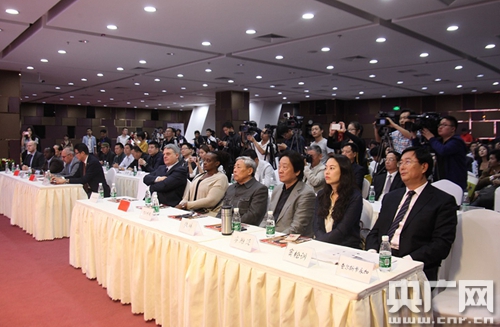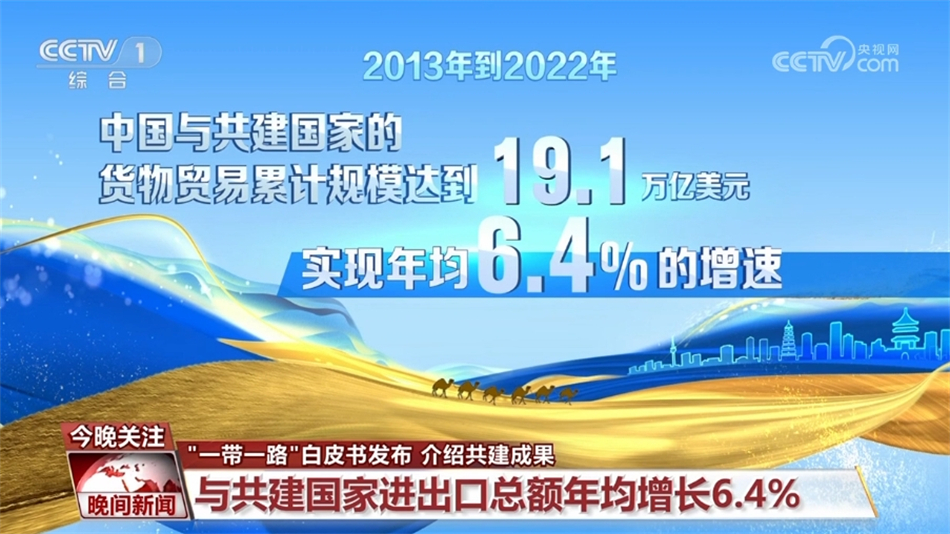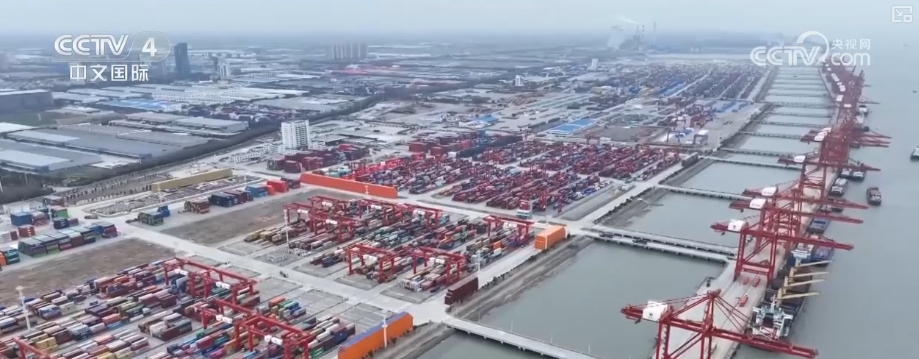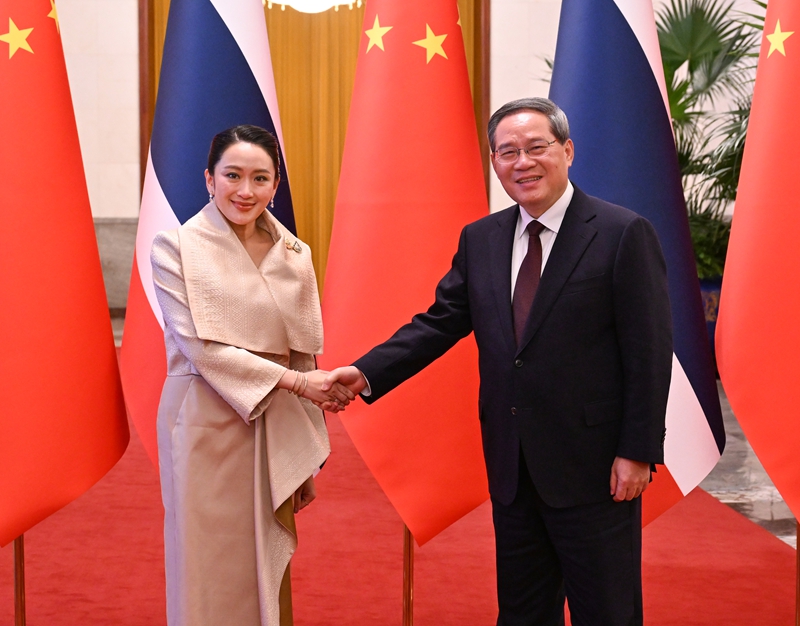Before Pakistan Came To China, 10,000 Crore Rupees Were Entered Into China, Smearing The Belt And Road Initiative, Rumors Of Self-defeating
Before Pakistan Came To China, 10,000 Crore Rupees Were Entered Into China, Smearing The Belt And Road Initiative, Rumors Of Self-defeating
For Pakistan, which is facing many challenges in the current economy, it really requires a considerable determination to pay off the debt in advance. Since 2017, Pakistan has accumulated payments to 18 Chinese-funded power plants.
Just as Pakistani Prime Minister Shabaz Sharif is about to visit China, before leaving, Pakistan first sent a special "gift" to China.
This gift is not a flower or a gorgeous word, but a solid "payback" action.
Pakistan used the electricity industry subsidies for the current fiscal year to pay China 10,000 crore in electricity debt in advance.
Pakistan's early repayment has strongly refuted the rumors that the West is called "Belt and Road" is a "debt trap".
Real money, Pakistan demonstrates sincerity in cooperation
The 10,000 crore rupees, converted into RMB, is nearly 4.6 billion yuan.
For Pakistan, which is facing many challenges in the current economy, it really requires a considerable determination to pay off the debt in advance.
Since 2017, Pakistan's cumulative payments to 18 Chinese-funded power plants have reached Rs 5.1 trillion, accounting for 92.3% of accounts payable.
The 10,000 crore rupees paid this time directly cut the remaining debt of nearly 30,000 crore by nearly one-third.
This tangible action is the most powerful proof of Pakistan's sincerity in cooperation with China.
Not only that, Pakistan has also taken out Rs 800 crore from its own subsidy budget for the power industry, specifically supporting Chinese power producers.
This "heart-to-heart" support fully demonstrates Pakistan's high attention to cooperation projects with China and its firm maintenance of the cooperation relationship between the two sides.

Project results have truly benefited the people of Pakistan
Some people may ask, why is Pakistan so active in paying back the money?
Behind this is the remarkable achievements of China and Pakistan’s cooperation projects under the Belt and Road Initiative.
Taking the power project as an example, in Punjab, Balochistan and other places, after the photovoltaic power stations and thermal power plants built by China were put into operation, the local power outage time was greatly reduced from 4 to 6 hours a day to less than 1 hour.
The construction of infrastructure such as electricity is very important to Pakistan, and the factory has finally gotten rid of the problem of insufficient power and can start construction all day.
Putting more household appliances into use can not only improve the quality of life of Pakistani people, but also help other electrical appliances made in China to open up the market in Pakistan.
Energy can be said to be the lifeblood of Pakistan's development, and China's projects are injecting continuous vitality into this lifeblood.
Cooperation model, transparent, mutually beneficial and win-win
There is a significant feature in China-Pakistan cooperation projects, that is, the high transparency of cooperation.
The two parties have specially set up a joint supervision team in the power project to disclose all capital flows throughout the process.
From the materials purchased by the project, to the number of workers recruited and wages paid, to the equipment used, every account is clear and clear. This transparent cooperation model not only ensures the rational use of project funds, but also enhances mutual trust between both parties.
At the same time, Chinese companies have always adhered to the concept of mutual benefit and win-win results during the implementation of the project, and given priority to recruiting local Pakistani workers.
Taking the Gwadar Port supporting road project as an example, local employees account for more than 70%. These workers are not only the labor force of the project, but also the targets that China focuses on training.
China provides them with comprehensive skills training, from basic power equipment operation, to maintenance of engineering vehicles, and even the teaching of project management knowledge.
After a project is completed, not only high-quality infrastructure is left behind, but also a local industrial team with excellent technology has been cultivated.
This is the true sustainable development cooperation model.
Currency swaps lay the foundation for repayment actions
Another key factor in Pakistan’s ability to repay early under economic pressure is that it is the currency swap agreement between China and Pakistan.
At the beginning of 2025, the People's Bank of China and the State Bank of Pakistan renewed a currency swap agreement with a total amount of RMB 190 billion.
The existence of this agreement has allowed Pakistan to obtain equivalent RMB liquidity in trade and project payments.
Simply put, Pakistan no longer needs to use its precious US dollar reserves, nor does it have to worry about the risks brought by exchange rate fluctuations. It can directly use RMB to pay for project costs of Chinese companies.
This greatly relieved Pakistan's foreign exchange pressure and cleared the obstacles for this early repayment action.
Rumors are self-defeating, and the Belt and Road Initiative has achieved remarkable results
For a long time, some Western countries have continuously fabricated rumors about the "Belt and Road" initiative for various purposes, and the so-called "debt trap theory" mentioned most by the West.
They maliciously discredited China's cooperation with other countries, claiming that China has put participating countries in debt difficulties through high loans in order to achieve the goal of controlling other countries.
However, facts outweigh eloquence.
China has brought real benefits to countries along the Belt and Road Initiative, and China will not control other countries.
From open cooperation to transparent supervision, Pakistan's initiative to repay early is a sign that China and Pakistan have always been conscientiously fulfilling their contracts in accordance with the contract for many years.
Pakistan's determination to stick to its commitments while its economy is not too rich is also a strong maintenance and consolidation of the long-term friendly and cooperative relations between China and Pakistan.
I believe that under such a benign interaction, cooperation between China and Pakistan and even the entire Belt and Road countries in various fields will reach a new glorious height, bringing more tangible benefits to people of many countries.





